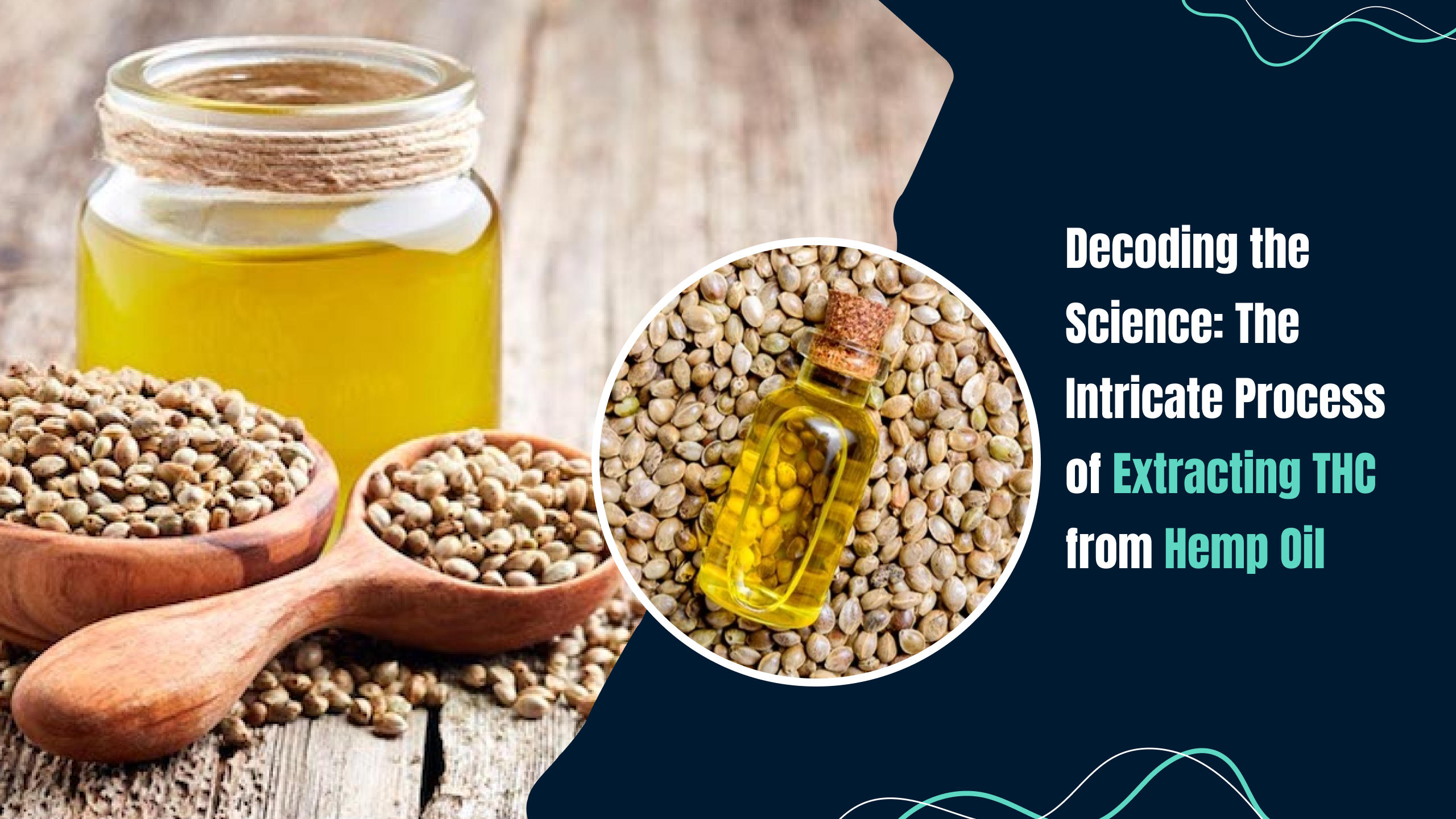
In a world buzzing with excitement over health breakthroughs, there's one name on everyone's lips: CBD. This extraordinary compound, short for cannabidiol, has taken center stage, captivating the attention of health enthusiasts, medical professionals, and curious minds alike.
Found naturally in cannabis plants, particularly hemp, CBD has shattered stereotypes and stands tall, distinct from its infamous relative, THC (tetrahydrocannabinol). Unlike THC, CBD does not induce a psychoactive high, making it a safe and versatile option for those seeking therapeutic benefits without unwanted side effects.
What are the Benefits of CBD over THC?
CBD (cannabidiol) offers a range of benefits over THC (tetrahydrocannabinol), its psychoactive counterpart.Some of the primary advantages of CBD are as follows:
- Non-Psychoactive: Unlike THC, CBD does not produce a "high" or alter one's state of mind. This makes CBD a suitable option for those who want to experience the potential therapeutic benefits of cannabis without the intoxicating effects.
- Legal Status: CBD derived from hemp plants with less than 0.3% THC is federally legal in the United States, thanks to the 2018 Farm Bill. This legality allows for broader access to CBD products without the legal restrictions associated with THC.
- Anxiety Relief: CBD has gained recognition for its anxiolytic properties. It interacts with receptors in the endocannabinoid system, potentially helping to reduce anxiety and promote a sense of calm without the side effects commonly associated with anxiety medications.
- Pain Management: CBD has shown promise in relieving acute and chronic pain. It may interact with receptors in pain perception, inflammation, and immune responses. CBD topicals, oils, or capsules are commonly used to alleviate discomfort and promote overall well-being.
- Anti-Inflammatory Properties: CBD has been recognized for its potential anti-inflammatory effects. It may help reduce inflammation by interacting with the body's immune system and various receptors. This makes it a valuable option for managing inflammation-related conditions, such as arthritis or inflammatory bowel disease.
- Neuroprotective Effects: CBD has been studied for its potential neuroprotective properties, particularly in relation to conditions such as epilepsy and multiple sclerosis. It may help reduce seizure frequency and severity in individuals with certain forms of epilepsy. Additionally, research suggests that CBD may positively impact neurological health and cognitive function.
- Minimal Side Effects: CBD is generally well-tolerated, with minimal side effects reported. Common side effects, if experienced, tend to be mild and include dry mouth, drowsiness, or changes in appetite. Compared to THC, which can cause more pronounced psychoactive effects and potential adverse reactions, CBD is considered to have a favorable safety profile.
- Addiction Potential: CBD is non-addictive and does not lead to dependence. Unlike THC, which can be habit-forming for some individuals, CBD does not produce the same addictive properties. This makes it a safer option for those concerned about the potential for substance abuse.
Who has the Right to Make & Sell CBD Oil in the USA?
The legal landscape surrounding CBD oil production and distribution in the United States can be complex to navigate. The key lies in understanding the distinction between hemp extracts and cannabis extracts. Thanks to the passing of the 2018 Farm Bill, hemp-derived CBD oil with a THC content of 0.3% or less is federally legal in the United States.
This legislation opened doors for farmers, entrepreneurs, and consumers alike to explore the potential of CBD oil as a natural remedy. However, it is important to note that individual state laws may impose additional regulations or restrictions. Therefore, it is crucial to stay informed about the specific hemp laws in your state before making or selling CBD oil products.
How to Extract CBD from Hemp Oils in 5 Steps
The process of extracting CBD from hemp oil involves several crucial steps, ensuring the purity and potency of the final product. Here's a simplified breakdown of the extraction process:
Step 1: Sourcing High-Quality Hemp, To obtain the best CBD oil, it starts with selecting premium hemp plants. These plants should be cultivated in compliance with organic farming practices, ensuring they are free from harmful pesticides and chemicals.
Step 2: Decarboxylation Process, To activate the full potential of CBD, decarboxylation is performed. This involves heating the hemp plant material at a specific temperature and duration to convert the inactive CBD-A (cannabidiolic acid) into the active CBD compound.
Step 3: Extraction Methods, Various extraction methods exist, each with its own advantages and drawbacks. Common techniques include solvent extraction (ethanol or CO2), olive oil extraction, and lipid infusion. These methods isolate CBD from the plant material, leaving behind unwanted compounds.
Step 4: Purification and Refinement, Once the CBD extract is obtained, further purification and refinement occur to eliminate impurities, waxes, and other unwanted components. This process ensures a clean and potent CBD oil.
Step 5: Third-Party testing, To guarantee the quality and safety of CBD oil, reputable manufacturers send their products to third-party laboratories for comprehensive testing. These tests analyze the cannabinoid content, check for contaminants, and confirm the absence of THC beyond the legal limit.
Conclusion
CBD has emerged as a game-changer in the field of natural medicine. With its myriad benefits and minimal side effects, it's no wonder that CBD has captured the attention of individuals seeking relief from various ailments. By extracting CBD from hemp oil through a meticulous process, manufacturers unlock the potential of this incredible compound, offering a natural and safe alternative for those seeking relief. As CBD continues to pave its way into the mainstream, the science behind decoding the THC from hemp oil ensures that its medicinal effects are harnessed for all benefits.
Remember, when choosing CBD oil products, prioritize reputable manufacturers that adhere to stringent quality standards and transparent practices. Embrace the potential of CBD to open up a world of healthcare opportunities.
